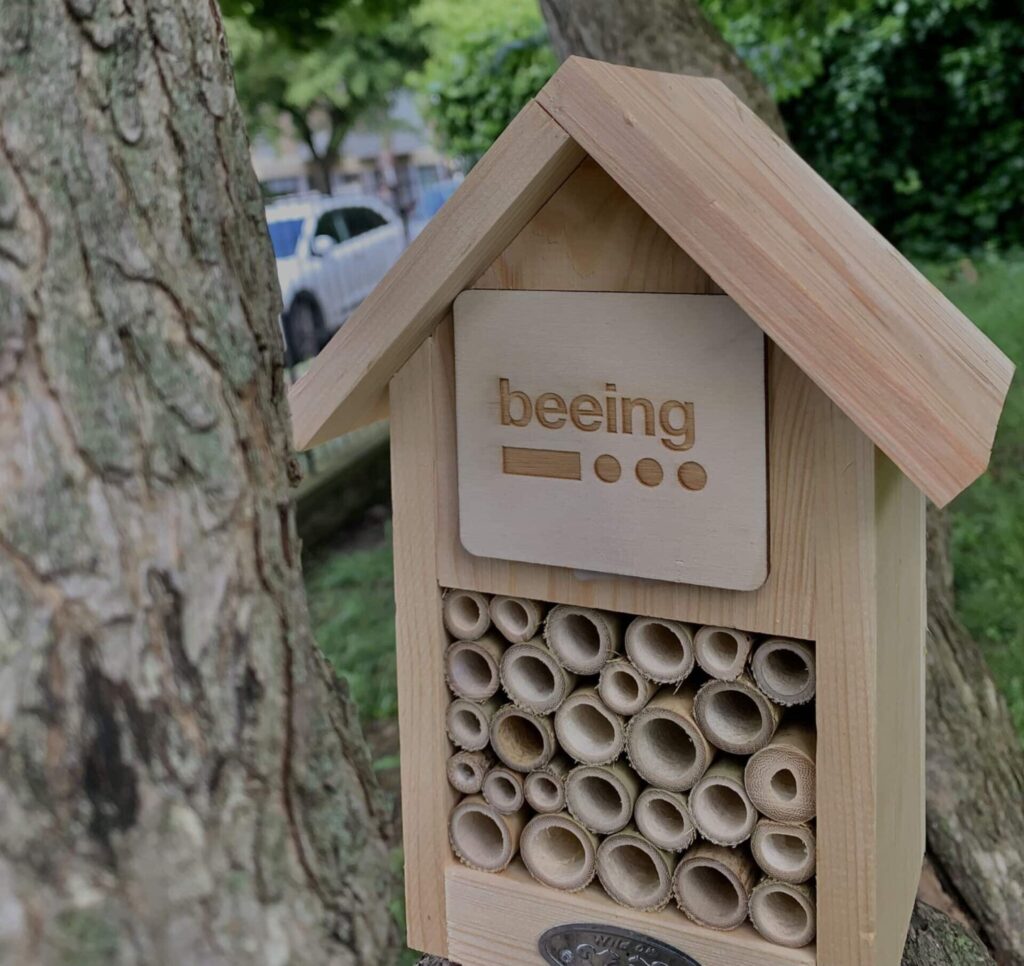Bees and pollinating insects, living beings that are essential for maintaining the balance of ecosystems and the proper functioning of our Planet, are under threat, now more than ever, from climate crises, droughts, heat waves, extreme events and the use of pesticides in agriculture. Pollination is one of the most important ecosystem services provided by nature for human nutrition and the economy. Of the approximately 1,400 plants that produce food and industrial products worldwide, almost 80% require pollination not only by honey or solitary bees, but also by wasps, butterflies, moths, beetles, birds and bats, among others. Thirty-five per cent of the world’s agricultural production depends on them, with an estimated annual economic value of over EUR 153 billion globally and EUR 22 billion in Europe.
In order to actively protect these now rare specimens, this year we at Beeing in collaboration with Legambiente, as part of the Save the Queen campaign, in view of World Bee Day 2023, have launched the ‘Bee hotel in a circle’ initiative, donating more than 100 biodiversity kits for the preservation of these important living creatures. Each kit comes with a jar of honey, a long-flowering seed mix selected for the wellbeing of bees and pollinating insects, and a Beeing Hotel, a nest designed in natural material to house native solitary nesting bees and to help create pollinator corridors in habitats affected by deforestation and urbanisation.
From North to South, the circles of the green swan association have taken action to encourage the nesting of solitary bees in more than 100 Italian cities, positioning Beeing Hotels in strategic locations with a strong symbolic value – such as suburban areas or urban parks – in which to encourage the repopulation of bees and pollinators, also involving local administrations.
“The issue of pollinating insects and bees in particular,” said Angelo Gentili, head of agriculture at Legambiente, “is a priority and strategic issue for the future of the planet. In order to save them from extinction, strategic and decisive actions are needed, from a greater presence of ecological corridors within agricultural areas to a drastic reduction of plant protection products and pesticides that, together with climate change, constitute the highest risk factor for the survival of bees. Wild bees are crucial in cases where there is a drastic decrease in honey bees. In some cases they are even more effective than honey bees, as in the case of osmias for apple trees or bumblebees for crops such as beans and other horticultural crops. Among the actions we can take to help pollinators is the creation of natural areas that can serve as nesting sites, places where they can find abundant food sources, breed and take refuge. Implementing our Save the Queen campaign with the installation of artificial shelters, of which the Bee hotels are an example, goes in this direction. The enormous participation and mobilisation of our circles, besides representing an important pride of association, shows how much sensitivity has grown in recent years and proves that concretely everyone, from administrations to individual citizens, can do their part.”
“We are delighted with this project with Legambiente,” said Roberto Pasi, founder of Beeing, “which has a national scope of great impact on over 100 Italian cities. Each partner city has received a biodiversity kit that will be the starting point for a project to protect local pollinating insects. Insects (both solitary and bees) can live healthily in our cities by enriching local biodiversity. In the city, insects find flowers all year round and can help create a balance of species, away from the pollution that often kills them in areas of intensive, non-organic agriculture. The project also activates citizens in over 100 cities as active players who can make a contribution by supporting local insects with other Bee hotels, planting “bee-friendly” flowers to feed them, or even just installing small pots with water to water them in the drier seasons. In addition to the important choices that every citizen can make as a responsible consumer by purchasing products from sustainable agricultural supply chains. The digital innovations developed by Beeing are of strategic support to beekeepers and citizens who want to make an impact in the creation of biodiversity.”
World Bee Day is not only about bees, but also includes other pollinators such as bats, hummingbirds and butterflies. Together, these essential animals help maintain healthy ecosystems and biodiversity and fully deserve a whole day dedicated to them!
